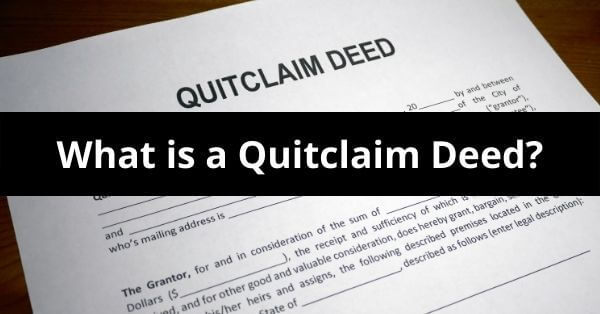A quitclaim deed is a legal document that either adds another owner to the title of a property, or transfers the title of a property from one owner to another if something happens to one of the people or parties.
Quitclaim deeds are often used when a couple gets married so the spouse is protected if their partner dies, when a married couple gets divorced so that the new owner is the only owner of the property, and between friends or family members who want to make sure ownership is guaranteed if something happens to the original property owner. Quitclaim deeds are also updated or used to fix errors on the title like a misspelling. This is normally done through a title company or a real estate lawyer.
It’s important to also know that a quitclaim deed can be revoked at any time by the person who filed the deed. And getting a quitclaim deed is not difficult, not to mention you do not need an attorney, although we do recommend using one.
To file for a quitclaim you will need:
- A legal description of the property
- The required forms completed and signed in front of a public notary
- To file the documents with your local county clerks office
Note: Some states have additional requirements, so check with your county clerk or a local title company to help prevent any surprises.
It is also important to know that quitclaim deeds are not the same as warranty and grant deeds.
Quitclaim Deed vs Warranty Deed
A warranty deed is the deed when you are buying the house with the person where a quitclaim deed is when you’re adding someone to a property you already own. For example, if you’re already married and you are shopping for a home, you’ll likely be purchasing a warranty deed. If you own your home and get married, then want to add your spouse, you’ll be using a quitclaim deed.
Quitclaim Deed vs Grant Deed
A grant deed is different from a quitclaim deed because a grant deed guarantees that the seller of the home is in fact the owner and the title is free and clear of any claims or issues. A quitclaim deed still says the seller is the owner, but there are no guarantees that the deed cannot be challenged or the seller is guaranteed to be the actual owner.
And now you know what a quitclaim deed is, who it protects and how it works.

